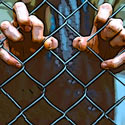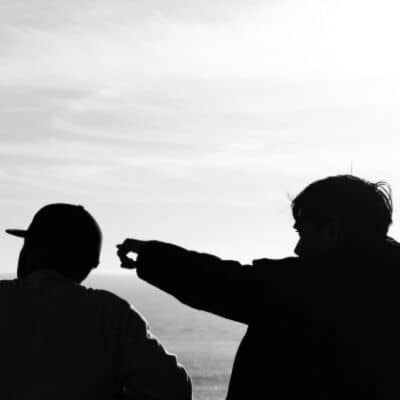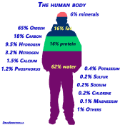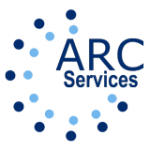Someone Drank Too Much, What Can You Do?
How many times have you had a relative who drank too much? Or maybe you were with friends one night, and one has had one, two, or ten drinks too many. This may have been your brother, sister, or even your spouse.
The keynote of their drinking too much is the embarrassing attitude and behaviour—the slurring attempt to keep up a conversation. Or worse, the loudness and abusive manner towards one or another.
These scenarios and others are all too typical when dealing with someone who drank too much. Sobering someone up would be absolutely fantastic, don’t you think? The steps below should not be attempted on someone who has alcohol poisoning. If you suspect an overdose, call 911.
First Step to Take
The first and foremost action is to stop the intake of alcohol. That is not always possible. In such a case, have some 0.0 or non-alcoholic beverages around. You can give the person this – without telling them. Most likely, they will not notice the difference. But you will have stopped the intake of alcohol. The following action, if possible, is to drink lots of water. This action will dilute the blood alcohol level. It also slows the effect of alcohol in the system. Unlike the false information, coffee will not sober them up. In fact, it tends to heighten it due to the caffeine content. Stopping hard liquor intake by drinking beer is another false treatment.

After a Treatment Program
Recognizing
Substance Use

Sobering Someone Up by Replenishing the Body
If available, the next action is to get the person to take a high dose of vitamin B1. Alcohol burns up B1 in the body, wholesale. By supplying B1 in a large amount will help counter the drunken state of mind.
What the body does not need will be dispensed with naturally. Keep in mind that a body is a living organism and is alive because of the proteins, minerals, vitamins, enzymes, and more that it uses.
Alcohol and other drugs are countering the proper function of the body. It means that the ingestion of foreign substances will destroy certain amounts of these nutrients. Replenishing the body’s nutrients is a good step to sobering someone up.

Safeguarding
Sobriety
Series on Intervention

Taking Care of the Mind
Due to the effects that alcohol has on the body as above, it follows that it also twists the mind. When a person takes too much alcohol, they will either do two things. One of them is to become very emotional; often, this will appear as grief, shame, regret, and such emotions. In some alcohol abusers, there is hopelessness and uselessness, including apathy.
The other that might happen is the person sticks at hostility, anger, and antagonism. These emotions are part of the mind’s memory content. What occurs is the alcohol has opened a mental “trap door.” The suppressed emotions of some long-past incident resurface, and they affect the person.
What Alcohol Does
Alcohol wakes up these negative emotions and amplifies them. But there is something you can do about it. In a course called “The Answer to drugs,” a technique exists to help the person snap out of it. It is called a “Locational,” and it means what it says. You help the person locate their present environment.
This action disconnects their attention from the past negative emotions and their dramatic amplification.
It is simple. You get the person to “Notice” or “Look” (by putting their attention on) while you point out a variety of objects in the room or surroundings.
You also thank the person once they saw or looked at the object you were pointing out. You repeat this as long as needed. You will notice the person “arriving” or “sobering up” and is now more aware of the surroundings.


Five Key Reasons
for Relapse
Series on
Treatment

Sobering Someone Up is Not an End-All for Alcohol Misuse
As you do this locational, you can expect the person to “go through” certain changes, mood swings, verbal nonsense, etc. They may even decide to purge the alcohol and sometimes the food they had at super. It is all part of the process of sobering someone up. You can even start with this locational action as the primary step. The action above will bring the person back to a normal awakened state when done long enough. Of course, it follows that this is not handling the alcoholism but just sobering up someone. When one has an alcohol addiction, one ensures full recovery by seeking professional addiction counselling.

Articles
- After a Treatment Program
- Challenges of Rehab (Treatment Series)
- Discharge Plan and Aftercare
- Drug Addiction in Canada- A Growing Problem
- Five Key Reasons for Relapse
- Government Addiction Treatment
- How Can Communities Help?
- Most Used Cutting Agents
- Oral Health and Addiction
- Price Tag of Sobriety
- Recognizing Substance Abuse
- Referral & Consultation, Defined
- Safeguarding Sobriety
- Series on Addiction
- Series on Intervention
- Sobering Someone Up
- Substance Abuse Assessment
- The Truth About Drugs
- After a Treatment Program
- Challenges of Rehab (Treatment Series)
- Discharge Plan and Aftercare
- Drug Addiction in Canada- A Growing Problem
- Five Key Reasons for Relapse
- Government Addiction Treatment
- How Can Communities Help?
- Most Used Cutting Agents
- Oral Health and Addiction
- Price Tag of Sobriety
- Recognizing Substance Abuse
- Referral & Consultation, Defined
- Safeguarding Sobriety
- Series on Addiction
- Series on Intervention
- Sobering Someone Up
- Substance Abuse Assessment
- The Truth About Drugs
Find out more about us.

Marc J. Bernard
Author,
Substance Use Disorder & Recovery Professional,
Referral & Consultation Counsellor


